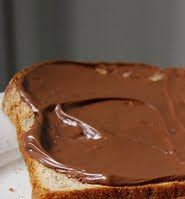Traditional Chinese Medicine & Food
Lychees are very unphotogenic, but really yummy! Seriously though, they are. When I put lychee into google images, this is what I got:



And I don't even know where I'm going with this anymore, but needless to say that lychees just kind of look globby when you try to photograph them:

Anyway, the reason I'm talking about lychees is that my foray with cooked foods over the winter break made me realize: a) how much I love raw foods and how they make me feel so much better b) that any dietary issue can probably be solved by raw food, you just have to figure out how. Right now, I've been looking for answers in Traditional Chinese Medicine, namely through the concept of "warming" and "cooling" foods.
The reason I was being a little bit more lax about my cooked foods intake over the last little while was because I'd been feeling kind of sluggish and generally "off". I thought maybe my potentially lower-calorie and high-alkaline diet was taking its toll and slowing down my metabolism, but having come back to raw foods this week and as a result finding myself bouncing off the walls with energy, I know I'm just missing a piece of the puzzle.
One belief in Chinese medicine is that foods mirror our body composition; foods can be hot, cold, dry, damp, or neutral. Obviously the point is to have a balanced body, and eating the "right" foods can help rebalance your internal climate. In short, some foods are cooling and some are heating. It really struck a chord when I looked up the symptoms of an overly cold and damp body: fatigue, heaviness, sluggishness, unexplained weight gain, yeast infections, bloating and gas, unclear thinking, and more. Dampness is said to slow the digestive system, therefore draining energy.
Also important is the concept of Yin and Yang energy found in food. Yang energy is tied to warmth and activating most bodily functions. Symptoms of deficiency or an overdose of Yin include coldness of extremities, low libido, lower back pain, and more. The "aha" moment? A lot of raw foods (fruits and veggies) are considered to be cold, damp foods, in other words Yin foods.
I've always believed that men and women react very differently to the raw diet, and I'm starting to think I know why. Men seem to be able to cope better with it over the long term, while women often go back and forth over whether or not they should keep going, their results drop off, they start gaining weight or bloat, etc. I'm wondering if this isn't because men, who naturally generate Yang energy, can balance out the large amounts of Yin foods they take in when going raw. However, women, who are naturally Yin, have the potential of "overdosing" on Yin energy by only consuming Yin foods... does that make sense? It certainly does to me! So I'm going to try to fix the sluggishness I've been feeling by sticking to a raw diet but trying to balance out my hot and dry vs. my cold and damp ratio the raw way. Maybe what was wrong all along is that my body is just out of balance.
Luckily, some raw foods still generate Yang. These are: ginger, pepper, carob, cinnamon, nutmeg, cloves, garlic, rosemary, sage, mint, basil, cayenne, turmeric, vinegar (I'll stick with Apple Cider Vinegar), seeds of all kinds, quinoa, oats, seaweed, red and green peppers, apricot kernels, coconut, dates, green onions, durian, lychees, apricots, berries, nuts (walnuts, chestnuts, pistachios), mangos, peaches, cherries, mandarins, and green tea. Amazingly enough, I've been naturally turning to a lot these foods more recently anyway... I love how your body always knows when you listen!
If you have excessive yin, it's also recommended that you shy away from dairy, wheat, caffeine, and high potassium foods. Once you are balanced again, most doctors of Chinese medicine recommend that you vary your diet as much as possible to keep it that way! Amazing stuff!
So it took me all that to say that for the very reason I just mentioned, I bought lychees this week. Come to think of it, when I was growing up, I always remember my mom telling me "don't eat too many lychees, they're a hot food, so if you eat too many your nose will bleed!" The urban legend family story she always told my sister and I was that my aunt once ate too many lychees causing her nose to bleed. Whether that story is true or not, I guess she knew what she was talking about.
I thought I could use these lychees as an occasion to come up with a new recipe rather than eating them straight up. Because I wanted to make them as an accompaniment to my banana ice cream, which I recognized would make it a "cold" dish (bananas = potassium = yin food), I balanced out the bananas by adding in some ginger. For those who aren't partial to ginger, lessen the amount because I looove it so it tastes pretty strong. The outcome? A delicious mostly heating Yang dessert that like all things lychee is not so photogenic (yes, it does look like I put clams in my banana ice cream...):
Heating Ginger Lychee Dessert

7-8 lychees, peeled and halved
1 frozen banana, sliced
1 inch chunk of ginger
couple pieces of crystallized ginger
1. Blend everything but lychees in high-speed blender
until it forms ice cream like substance
2. Place in bowl and top with sliced lychees
3. Enjoy the warmth!
(Some of the info for this post, came from this article. In addition, I just remembered that We Like It Raw also published a great article about the concept of Yin foods... See, I'm not the only one thinking this!)



Comments
Post a Comment